Business transformation is a deliberate and vocational developmental process. It can be framed as a three-stage journey in which organizations gradually learn to see themselves as part of broader societal and ecological systems, dialectically increasing their collective consciousness and commitment to becoming a greater force for good.
The first stage, Reveal, involves uncovering the organization’s dominant business ideology by analysing its structures, governance, operational, and people practices. This diagnostic process identifies the organization’s "colour," reflecting the underlying beliefs and values driving its behaviour.
In the Reflect stage, stakeholders critically evaluate the limitations of the current ideology in achieving the organization’s full potential and imagine a flourishing future. This includes acknowledging shortcomings—whether in product design, resource usage, or the instrumentalization of people—and designing an organizational constitution that codifies moral ambition, shared values, governance principles, and leadership commitments.
Finally, Reinspire focuses on reshaping the organization’s character to align with its aspirations for social responsibility and flourishing. This entails redesigning structures, governance, decision-making processes, systems, success measures, policies and practices. Guided by the Flourishing Manifesto, organizations advance to the next "colour," evolving from hierarchical "red" to purpose-driven "purple," and positioning themselves as catalysts for positive societal change.


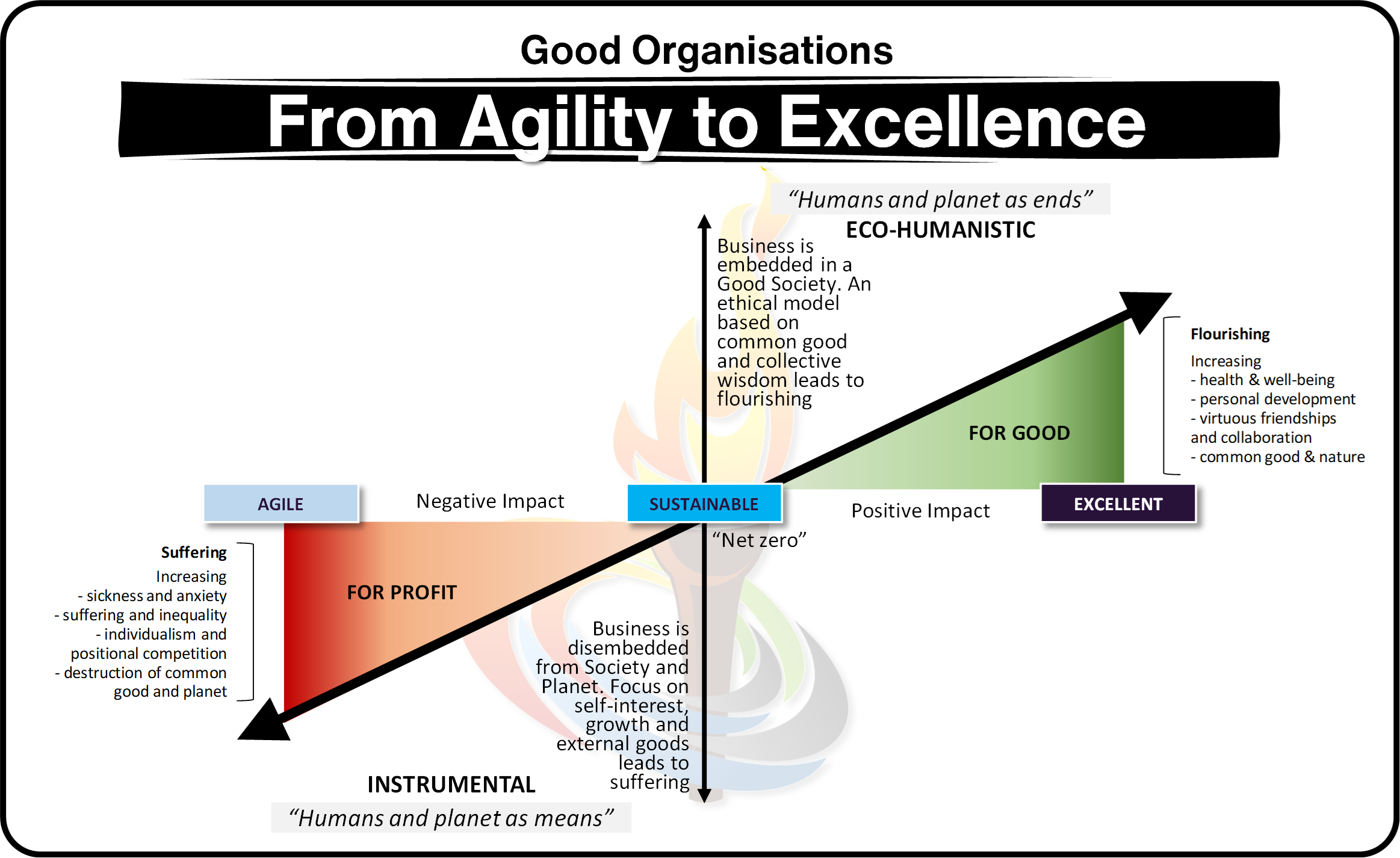
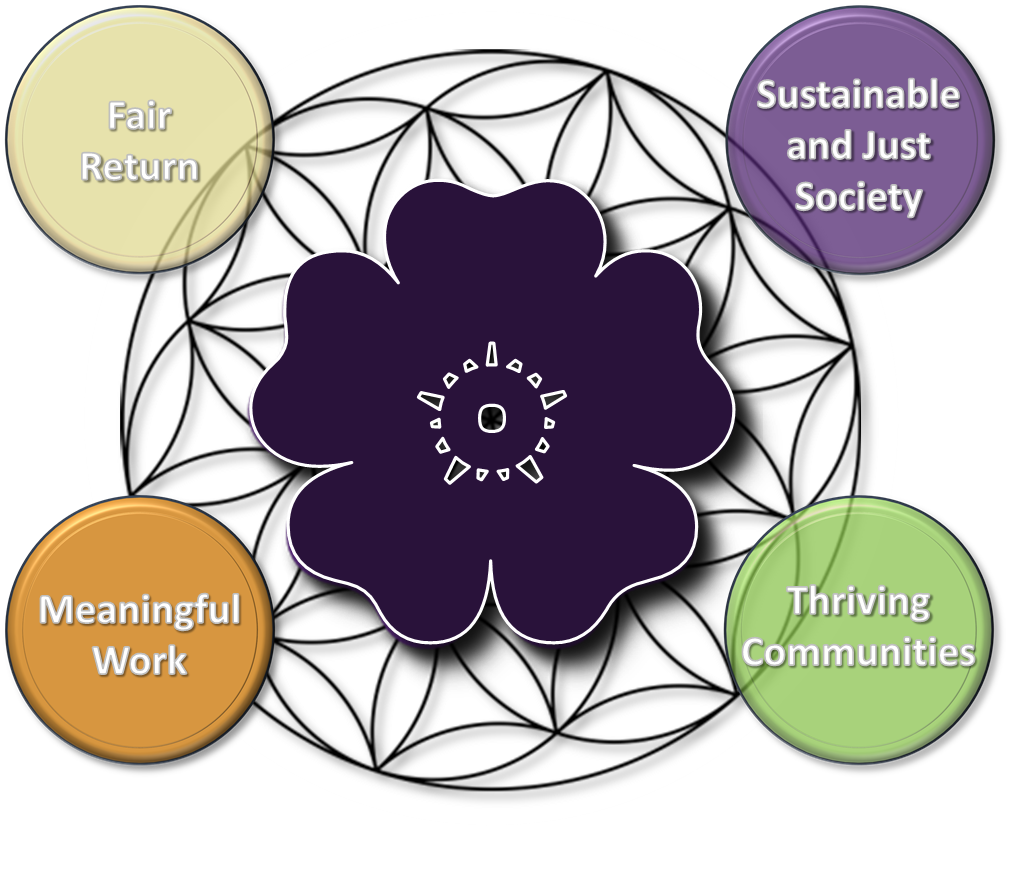
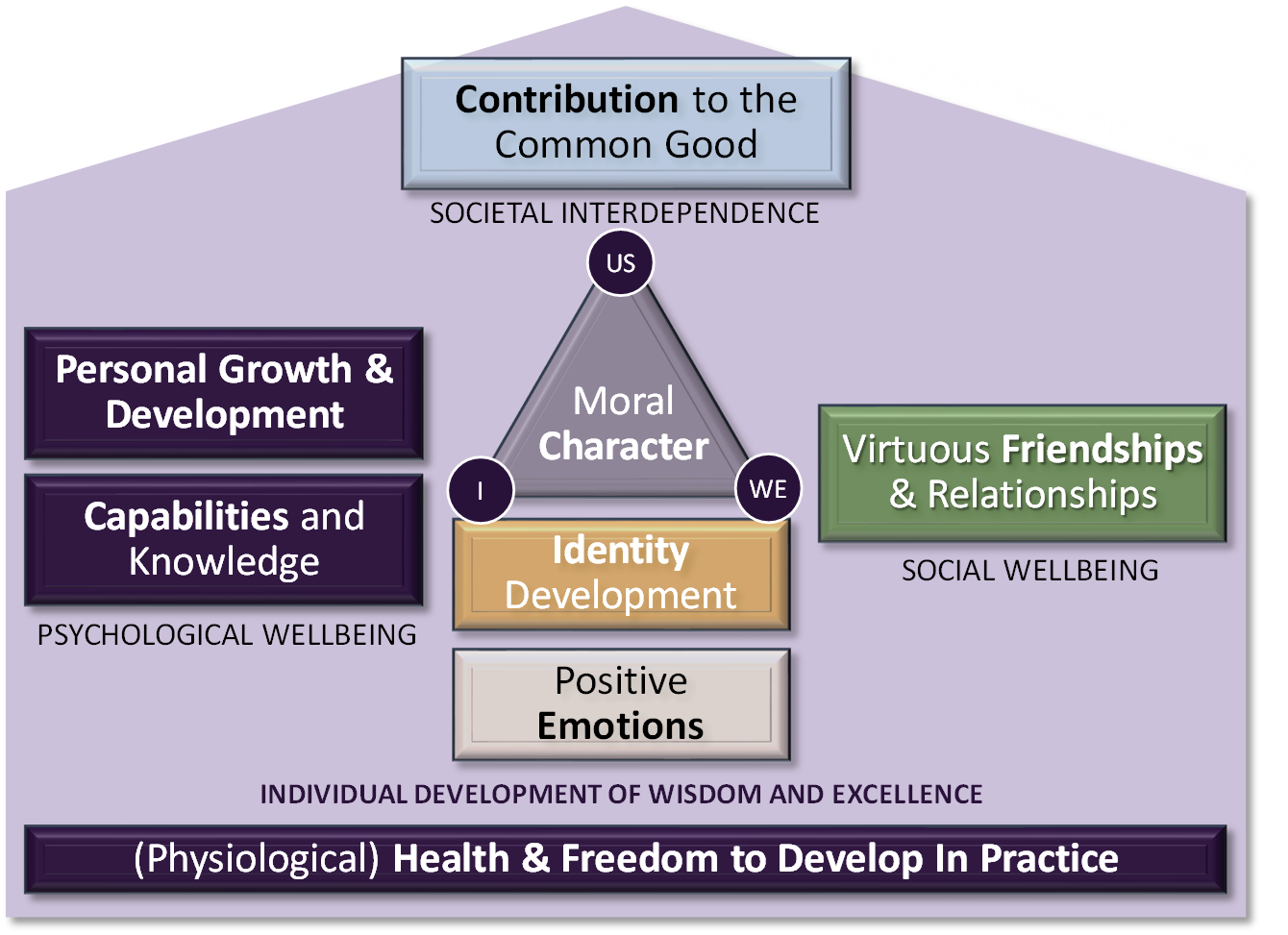
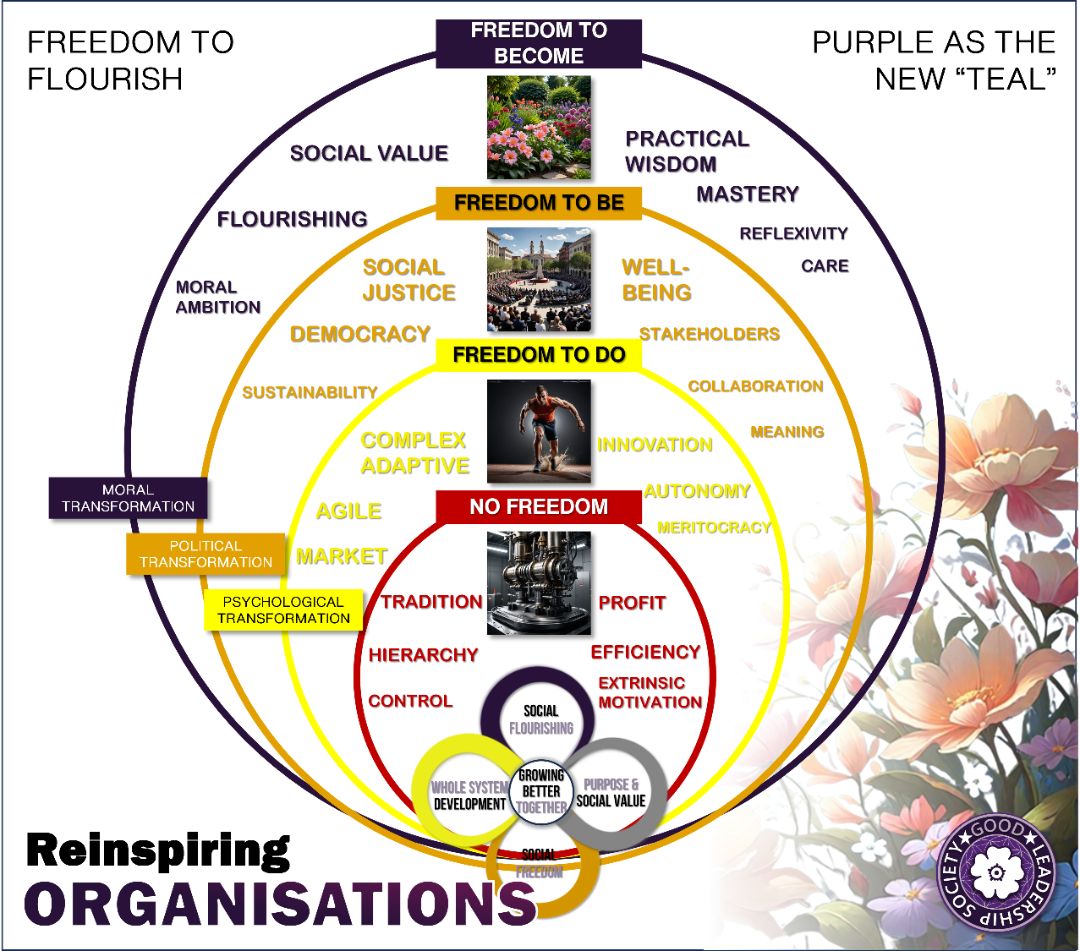
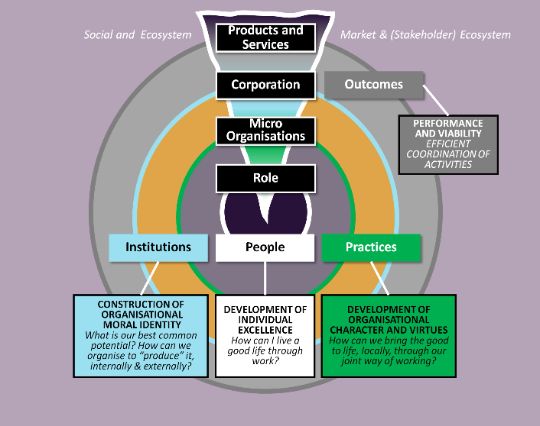
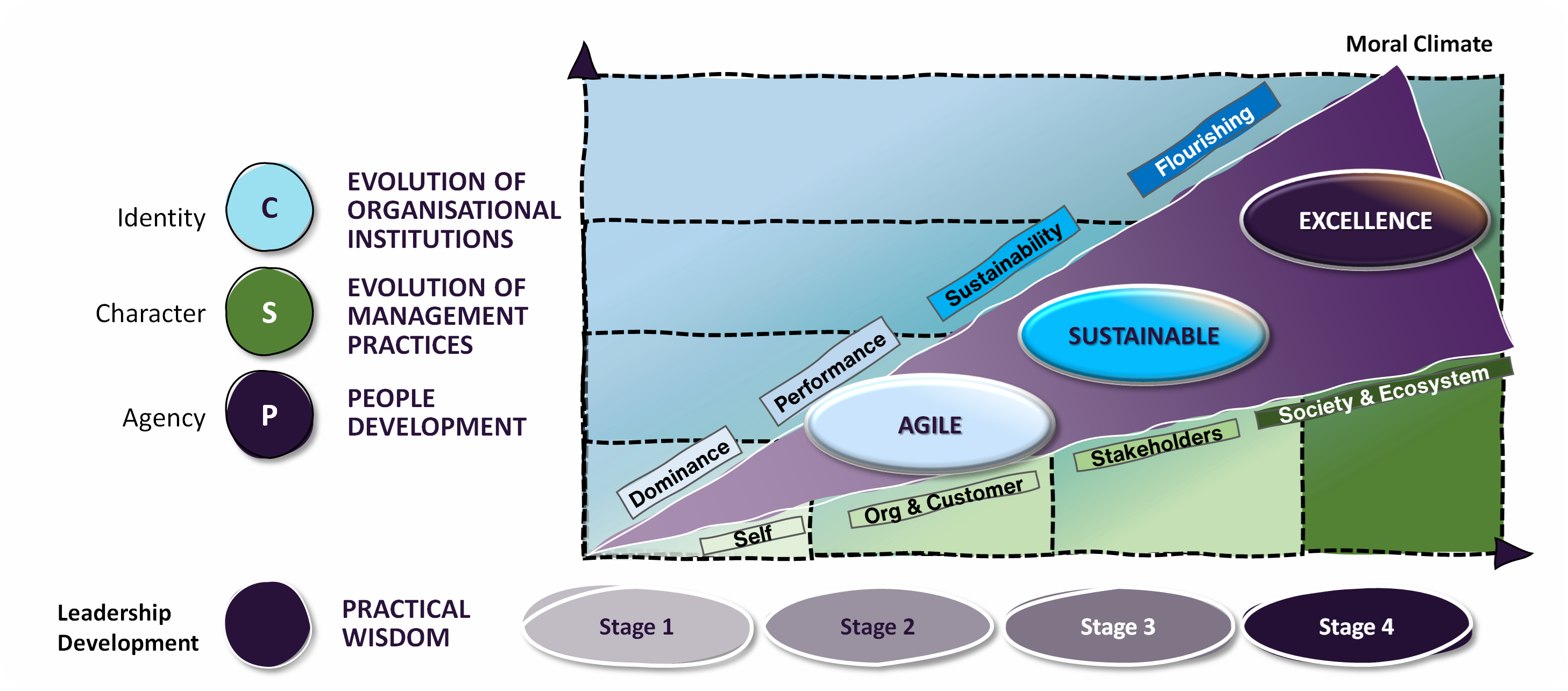
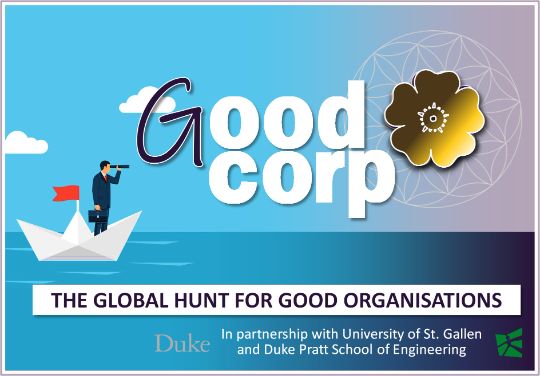



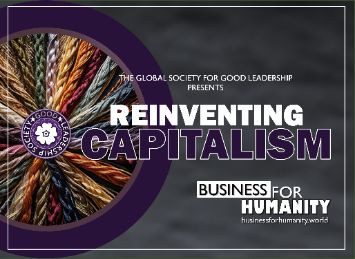

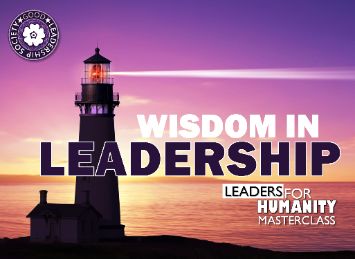
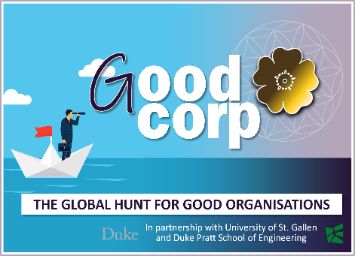

 .
.